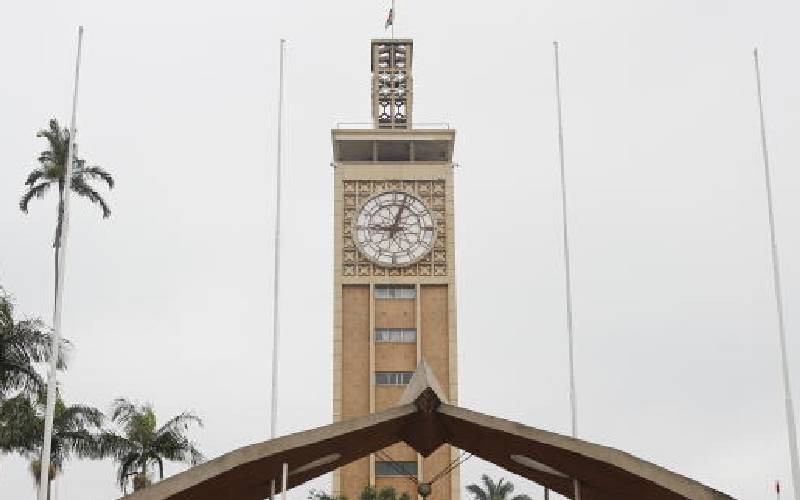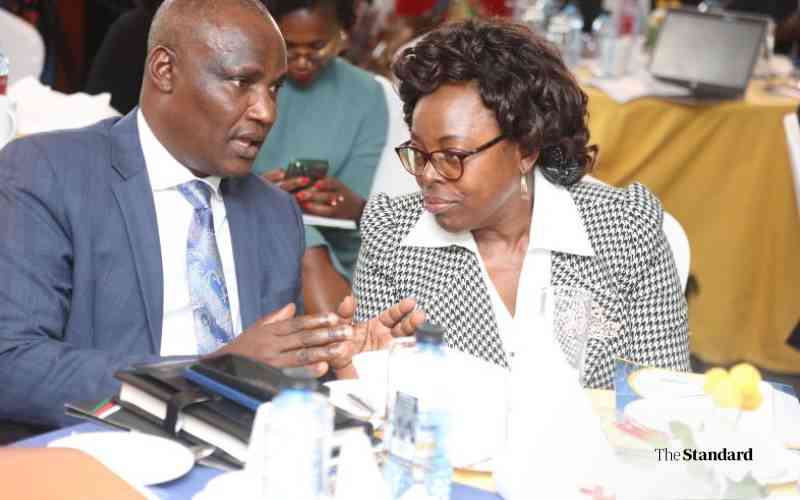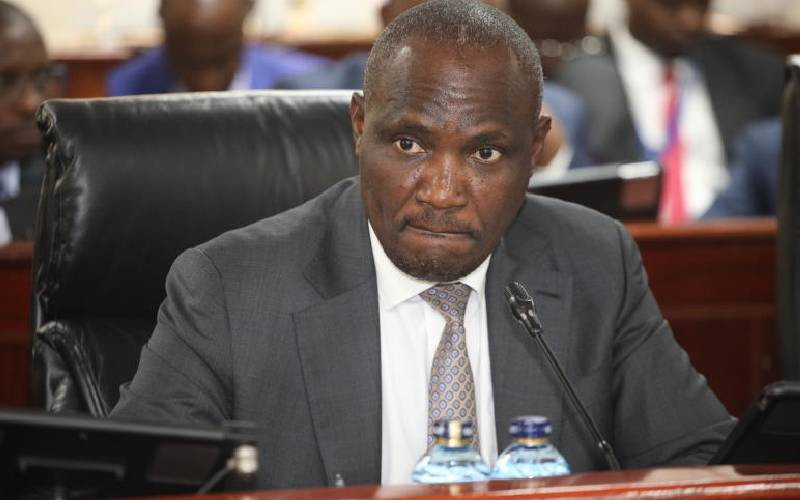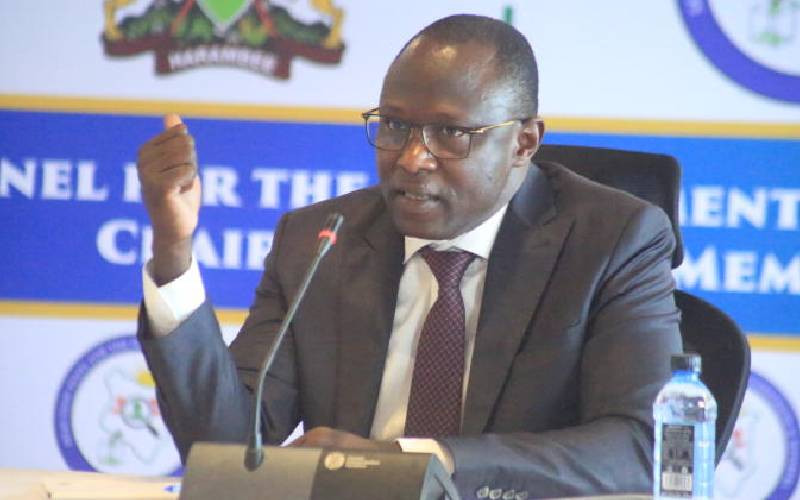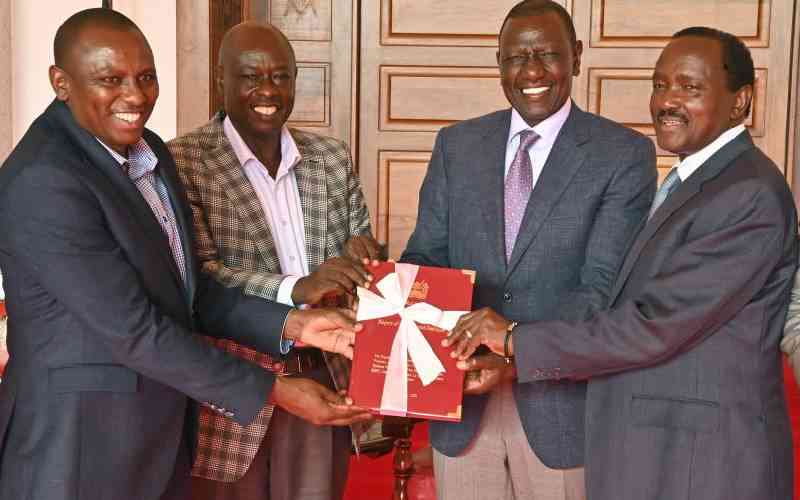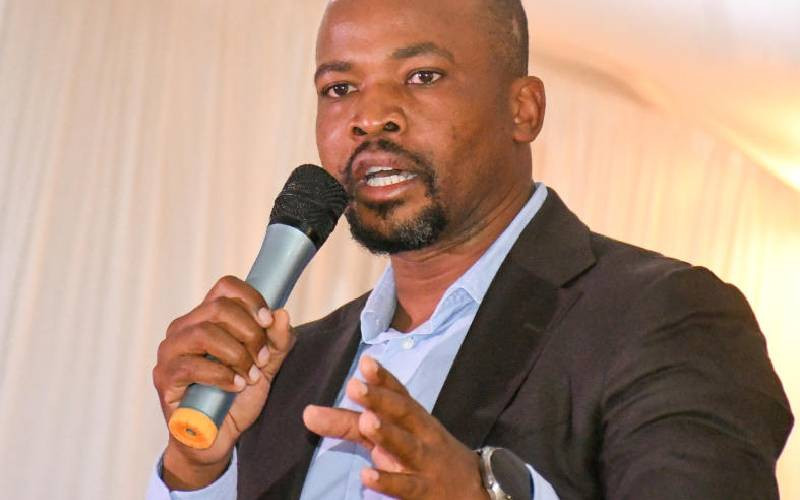
Habemus Papam. Robert Francis Prevost, who chose the name Leo XIV, is the first American to be appointed to this high office. Which is surprising at a time America is not the world’s favourite country! We wish him well.
Closer home, we have an IEBC chair and another surprise; it is Erastus Edung Ethekon, an affable, well-read and fairly accomplished lawyer from Turkana County.
Relative to Charles Nyachae and Anne Amadi, the names that occupied public discourse, he is largely unknown. But whether you know or don’t know Ethekon, you only need to travel to Turkana and you will leave with tremendous respect for those who have come from those forgotten lands and be accomplished as much as he has. We also wish him well.
But this week my focus is not on these appointments but on the ongoing public participation forums by Parliament on constitutionalising the three funds, the National Government CDF, the Affirmative Action Fund and the Senate Oversight Fund.
Truth be told, the focus of the proposed constitutional amendment to entrench the funds is about CDF, the other funds are collateral beneficiaries. While they have their own challenges, they are yet to achieve the ignominy that CDF has acquired over the years. Let me start by saying I totally appreciate where MPs are coming from in their fight to save CDF. Before establishment of CDF, the work of an MP was impossible, what with demands for school fees, hospital bills and even dowry contributions, all of which an MP was expected, nay obliged, to deliver to their constituents.
When it was introduced in 2003 through a private member’s motion by Engineer Muriuki Karue, then Ol Kalau MP, CDF became a game changer. MPs could now “deliver” macro and micro development to their constituents without going out of pocket. In those good old days, the MPs openly and unilaterally determined the projects or persons to be funded, oversaw disbursement of the funds and generally used CDF as their personal slash fund. Since then, the fund is, at least on the face of it, distanced from the MP who now, ostensibly, only oversees the fund but is not involved in its actual management.
Truth is, most MPs use CDF in the same way as the good old days, but they cover their involvement through the shroud of the CDF Constituency Committee and Management Office. As MPs undertake this arduous task, I can also wish them well. Some happen to be lifelong friends. They must however note one significant challenge with the proposed amendment at a constitutional level. It relates to the functions of Parliament.
These functions have traditionally been known as representation, which involves transmitting their constituents concern to the State, law making, which speaks for itself, and oversight over the Executive and other government organs. The courts that have declared previous CDF Acts unconstitutional have found that parliamentarians’ management of CDF, however concealed, permits them to carry out executive roles, which is unconstitutional. Consequently, entrenching CDF in the Constitution would amount to changing the functions of Parliament. This raises the problem of process. Under Article 255, any changes to the functions of Parliament requires a referendum.
This amendment therefore requires a referendum. Does the country have an appetite, or the resources, for a referendum? If per chance the MPs were successful, would that leave us with “unconstitutional constitutional provisions”? The courts have also indicated that in its proposed form, CDF offends our governance system, particularly as it relates to devolution.
The ongoing fights between MPs and county governments over the roads funds confirms the deeper challenge of MPs increasingly concentrating on executive roles. The casualty of this concentration on executing is a loss of focus on their primary roles. Laws take forever to get passed and when they do, a significant number are deemed unconstitutional. The oversight over the Executive is wanting. As for representation, the less said the better. I now know how this issue will eventually end, but I sympathise with MPs, particularly for those already addicted to CDF. For them it is inconceivable to imagine an MP’s world without CDF. But it is a world that will soon be a reality.
The writer is an advocate of the High Court of Kenya
 The Standard Group Plc is a
multi-media organization with investments in media platforms spanning newspaper
print operations, television, radio broadcasting, digital and online services. The
Standard Group is recognized as a leading multi-media house in Kenya with a key
influence in matters of national and international interest.
The Standard Group Plc is a
multi-media organization with investments in media platforms spanning newspaper
print operations, television, radio broadcasting, digital and online services. The
Standard Group is recognized as a leading multi-media house in Kenya with a key
influence in matters of national and international interest.
 The Standard Group Plc is a
multi-media organization with investments in media platforms spanning newspaper
print operations, television, radio broadcasting, digital and online services. The
Standard Group is recognized as a leading multi-media house in Kenya with a key
influence in matters of national and international interest.
The Standard Group Plc is a
multi-media organization with investments in media platforms spanning newspaper
print operations, television, radio broadcasting, digital and online services. The
Standard Group is recognized as a leading multi-media house in Kenya with a key
influence in matters of national and international interest.


